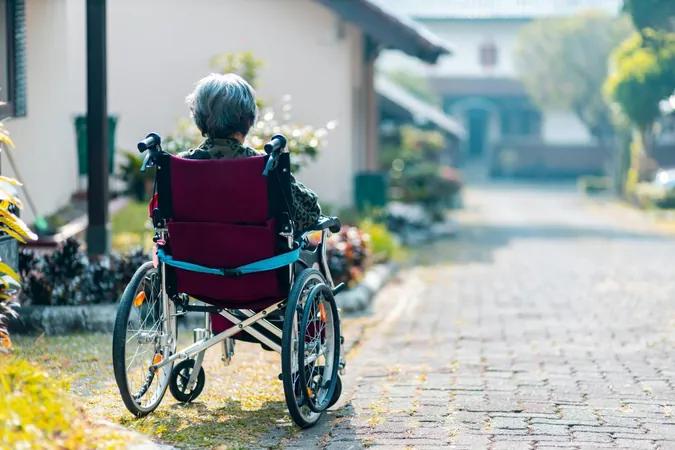
Shocking Rise: U.S. Dementia Diagnoses Predicted to Skyrocket to 1 Million Annually by 2060!
2025-01-14
Author: Wei
The Growing Epidemic of Dementia
The research highlights that over 40% of individuals aged 55 and older are likely to develop dementia in their lifetime. Women, Black Americans, and individuals over 75 are found to be at even greater risk. Dementia encompasses a range of symptoms, primarily characterized by a progressive decline in memory, concentration, and decision-making abilities. Moreover, it stands as the seventh leading cause of death globally among older adults.
A Call to Action for Public Health
Dr. Josef Coresh, the study's senior investigator and founding director of the Optimal Ageing Institute at NYU Langone Health, emphasized that proactive measures could significantly mitigate the impact of this looming health crisis. "We need to be prepared for the needs of the oldest adults," he asserted. He believes that better public awareness of dementia risks is vital for effective public health planning and policy development.
Preventative Measures and Treatments
While there is currently no cure for dementia, certain treatments, such as Eli Lilly & Co’s Kisunla, have shown potential in slowing down the progression of Alzheimer's disease, one of the primary causes of dementia. The study suggests that there are numerous preventative strategies that can be implemented, including: - Embracing healthy lifestyle choices like quitting smoking - Managing chronic conditions such as high blood pressure and diabetes - Addressing mental health factors, including depression and anxiety Dr. Coresh points out the importance of coordinated healthcare systems to ensure that patients receive comprehensive management of their health conditions.
The Disparity in Healthcare Access
Notably, the study underscores the stark racial disparities in dementia risks: while rates among white individuals are expected to double by 2060, projections indicate that the prevalence among Black individuals could triple. As such, addressing these inequalities within the healthcare system is imperative. Dr. Coresh advocates for increased resources and tailored strategies to support vulnerable populations who may face greater barriers to accessing preventive care.
The Importance of Early Detection
According to the research, individuals over the age of 55 carry a 42% risk of developing dementia—an increase from earlier studies, which may have underestimated the threat due to inadequate tracking of early-stage cases and lack of reliable data among minority populations. Hearing aids, which could potentially slow cognitive decline in high-risk individuals, are significantly underutilized, with only one-third of those in need actually using them. Dr. Coresh urges that, "It's never too early or too late" to adopt measures to reduce the risk of dementia.
Conclusion: Prepare for the Future
As the U.S. faces an impending surge in dementia cases, a concerted effort from public health officials, healthcare providers, and communities is essential in fostering awareness, implementing effective interventions, and developing policies to support both individuals at risk and their caregivers. The time to act is now—before we are overwhelmed by this growing public health crisis!
 Brasil (PT)
Brasil (PT)
 Canada (EN)
Canada (EN)
 Chile (ES)
Chile (ES)
 Česko (CS)
Česko (CS)
 대한민국 (KO)
대한민국 (KO)
 España (ES)
España (ES)
 France (FR)
France (FR)
 Hong Kong (EN)
Hong Kong (EN)
 Italia (IT)
Italia (IT)
 日本 (JA)
日本 (JA)
 Magyarország (HU)
Magyarország (HU)
 Norge (NO)
Norge (NO)
 Polska (PL)
Polska (PL)
 Schweiz (DE)
Schweiz (DE)
 Singapore (EN)
Singapore (EN)
 Sverige (SV)
Sverige (SV)
 Suomi (FI)
Suomi (FI)
 Türkiye (TR)
Türkiye (TR)
 الإمارات العربية المتحدة (AR)
الإمارات العربية المتحدة (AR)